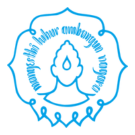Knowledge, Attitude, and Implementation of Cold Chain Management in Boalemo District, Gorontalo, Indonesia
Abstract
Background: Children's health is a priority in health development with the goal of reducing child mortality. So far, high immunization coverage does not guarantee the emergence of diseases that can be prevented by immunization (PD3I). Cold Chain Management is a system used to store vaccines in good condition which refers to the vaccine supply chain for the immunization procurement chain. The purpose of this study was to examine the relationship of knowledge, attitude, and implementation of cold chain management.
Subjects and Method: This was a cross sectional study conducted at 11 health centers in Boalemo District, Gorontalo, Indonesia, in September 2018. A sample of 34 health officers was selected purposively. The dependent variable was cold chain management. The independent variables were knowledge and attitude. The data were collected by questionnaire and observation sheets. The data were analyzed by Chi square.
Results: High knowledge increased positive attitude toward implementation of cold chain management (OR= 5.87; p= 0.061). High knowledge (OR= 2.17; p= 0.448) and positive attitude (OR= 2.69; p= 0.405) increased implementation of cold chain management, but they were statistically non-significant.
Conclusion: High knowledge and positive attitude increase implementation of cold chain management
Keywords: cold chain management, vaccine, knowledge, attitude
Correspondence: Zulfiayu Sapiun. Department of Pharmacy, Health Polytechnics, Ministry of Health Gorontalo.Jl. Taman Pendidikan 36, Gorontalo 96123, Indonesia. Email: zulfiayu@poltekkesorontalo.ac.id. Mobile: 081244521639
Journal of Health Policy and Management (2020), 05(02): 139-145
https://doi.org/10.26911/thejhpm.2020.05.02.06
How to Cite
References
Azira B, Norhayati MN, Norwati D (2013). Knowledge, attitude and adherence to cold chain among general practitioners in Kelantan, Malaysia.Int J Collab Res Intern Med Public Health, 5(3): 157–167.
Dometic (2014). B Medical systems i cold chain b medical systems your global partner to save lives.
Donsu (2017). Psikologi keperawatan, aspek-aspek psikologi, konsep dasar psikologi, teori perilaku manusia (Nursing psychology, aspects of psychology, basic concepts of psychology, theories of human behavior). Yogyakarta: Pustaka Baru Press.
Efe, Oncel O (2008).What do midwives in one region in Turkey know about. Midwifery, 24: 328–334. doi: 10.1016/j.midw.2006.11.002.
Gantinia AU, Sadeli M, Saleh T (2017). Gambaran penerapan rantai dingin vaksin imunisasi dasar di Purwakarta tahun 2017 (An overview of the application of the basic immunization vaccine cold chain in Purwakarta in 2017’).
Kairul A, Udiyono LDS (2016). Gambaran pengelolaan rantai dingin vaksin program imunisasi dasar (Studi di 12 Puskesmas Induk Kabupaten Sarolangun). Jurnal kesehatan masyarakat, 4(6): 417–423. https://media.neliti.com/media/publications/163253-ID-gambaran-pengelolaan-rantai-dingin-vaksi.pdf.
Ministry of Health (2013). Basic Health Research. Jakarta.
Nelson CM, Wibisono H, Purwanto H, Mansyur I, Moniaga V, Widjaya A (2004). Hepatitis B vaccine freezing in the Indonesian cold chain: Evidence and solutions. Bulletin of the World Health Organization, 82(2): 99–105. doi: 10.1590/S004296862004000200006.
Nurzia N (2018). Hubungan pengetahuan dan sikap bidan di RSUD H. Abdul Manap Kota Jambi tentang penyimpanan vaksin tahun 2018 (The relationship of knowledge and attitudes of midwives at the Abdul Manap Hospital in Jambi City about 2018 vaccine storage).
Pracoyo NE, Jekti RP, Puspandari N (2013). Hubungan antara pengetahuan dan sikap pengelola vaksin dengan skor pengelolaan vaksin di daerah kasus difteri di Jawa Timur (The relationship between knowledge and attitudes of vaccine administrators with
vaccine management scores in diphtheria case areas in East Java). Media Litbangkes, 23(3): 102–109.
Purnamasari (2010). Faktor-faktor yang berhubungan dengan sikap petugas PBF terhadap pengelolaan Cold Chain (Factors related to the attitude of pbf officers towards cold chain management). http://lib.ui.ac.id/file?file=digital/20307528-T31361-Faktor-faktor-full
text.pdf.
Putri RH (2016). Pengaruh pendidikan, pengalaman kerja dan jenis kelamin terhadap produktivitas kerja (Effects of education, work experience and gender on work productivity). Universitas Negeri Yogyakarta.
Rao S, Naftar S, Baliga S (2013). Evaluation, awareness, practice and management of cold chain at the primary health care centers in coastal South India. J Chem Inf Model, 53(9): 1689–1699. doi: 10.1017/CB-O9781107415324.004.
Ryza JBN, Rismayanti DSA (2017).Imunisasi dasar di kota Makassar implementation of vaccine cold chain procedures on basic immunization services in Makassar. 25: 88. https://core.ac.uk/download/pdf/77621591.pdf.
Sudiharti S (2012).Hubungan pengetahuan dan sikap dengan perilaku perawat dalam pembuangan sampah medis di rumah sakit PKU Muhammadiyah Yogyakarta (Relationship of knowledge and attitude with nurses' behavior in medical waste disposal in PKU Muhammadiyah
Yogyakarta hospital), Jurnal Kesehatan Masyarakat. 6(1): 49–59.
Wawan, Dewi (2012). Pengukuran dalam bidang pendidikan (Measurement in education). Jakarta: Grasindo.
WHO (2015). The vaccine cold chain, in Immunisation in practice. WHO, 46. www.who.int/immunization/documents/IIP2015_Module2.pdf.
YakumMN, Ateudjieu J, Walter EA, Watcho P (2015). Vaccine storage and cold chain monitoring in the North West region of Cameroon: a cross sectional study. BMC Res Notes, 8(145): 1-7. doi: 10.1186/s13104-015-1109-9
Zhang X, Wang L, Zhu X, Wang K. (1999). Knowledge, attitude and practice survey on immunization service delivery in Guangxi and Gansu, China. Soc Sci Med. 49: 1125–1127.





